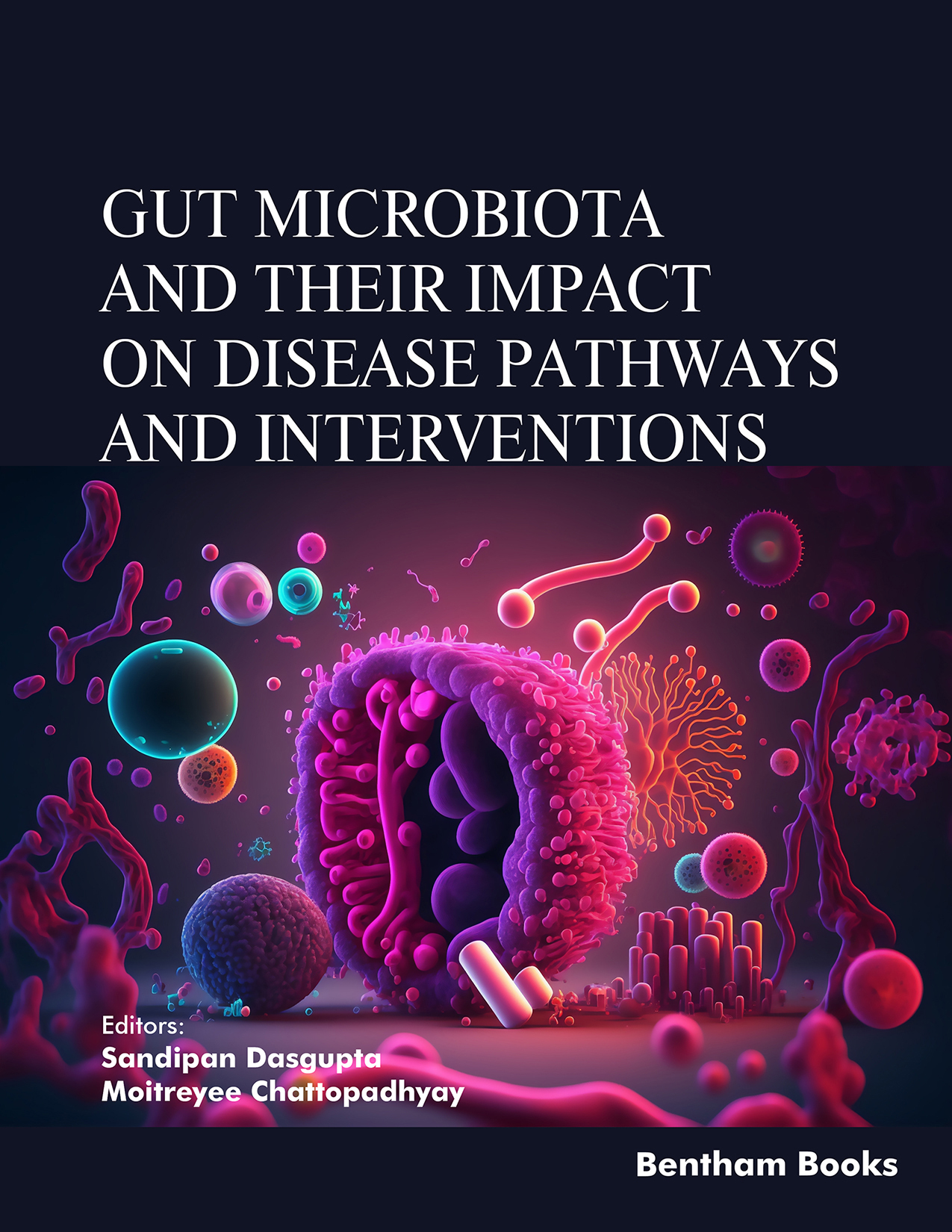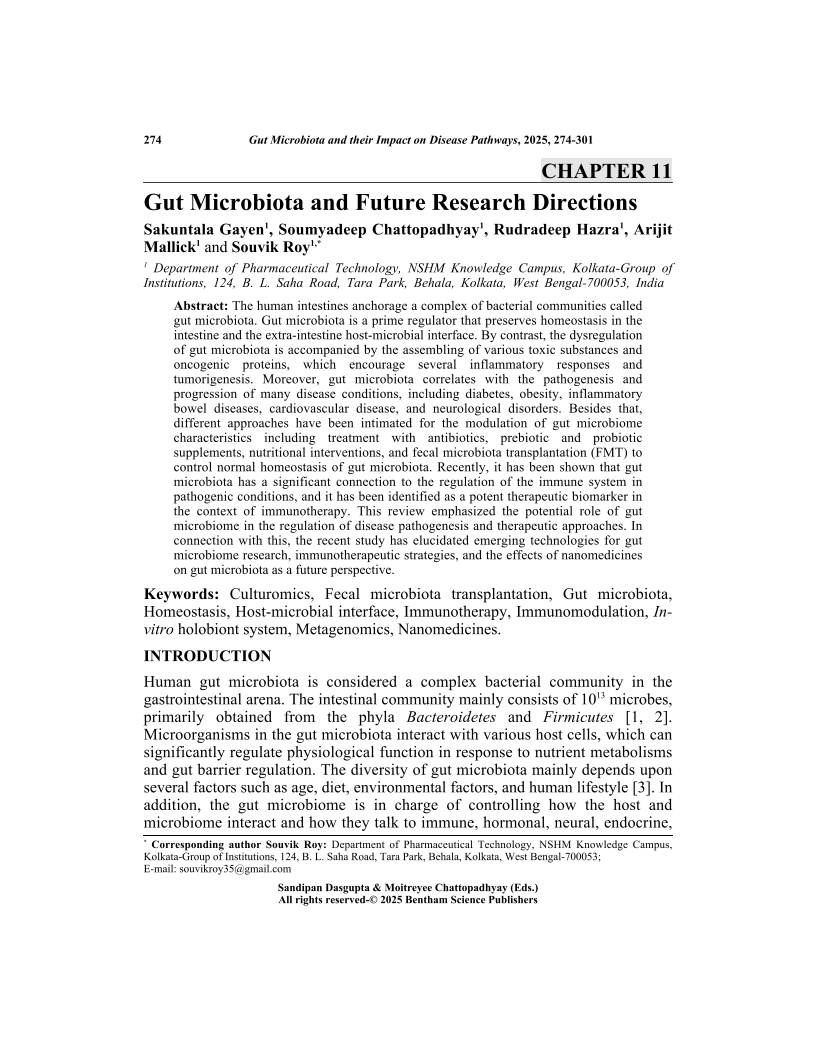Gut Microbiota and Future Research Directions

- Authors: Sakuntala Gayen1, Soumyadeep Chattopadhyay2, Rudradeep Hazra3, Arijit Mallick4, Souvik Roy5
-
View Affiliations Hide Affiliations1 Department of Pharmaceutical Technology, NSHM Knowledge Campus, Kolkata Group of Institutions, 124, B. L. Saha Road, Tara Park, Behala, Kolkata, West Bengal-700053, India 2 Department of Pharmaceutical Technology, NSHM Knowledge Campus, Kolkata-Group of Institutions, 124, B. L. Saha Road, Tara Park, Behala, Kolkata, West Bengal-700053, India 3 Department of Pharmaceutical Technology, NSHM Knowledge Campus, Kolkata-Group of Institutions, 124, B. L. Saha Road, Tara Park, Behala, Kolkata, West Bengal-700053, India 4 Department of Pharmaceutical Technology, NSHM Knowledge Campus, Kolkata-Group of Institutions, 124, B. L. Saha Road, Tara Park, Behala, Kolkata, West Bengal-700053, India 5 Department of Pharmaceutical Technology, NSHM Knowledge Campus, Kolkata-Group of Institutions, 124, B. L. Saha Road, Tara Park, Behala, Kolkata, West Bengal-700053, India
- Source: Gut Microbiota and their Impact on Disease Pathways and Interventions , pp 274-301
- Publication Date: April 2025
- Language: English
Gut Microbiota and Future Research Directions, Page 1 of 1
< Previous page | Next page > /docserver/preview/fulltext/9789815324549/chapter-11-1.gif
The human intestines anchorage a complex of bacterial communities called gut microbiota. Gut microbiota is a prime regulator that preserves homeostasis in the intestine and the extra-intestine host-microbial interface. By contrast, the dysregulation of gut microbiota is accompanied by the assembling of various toxic substances and oncogenic proteins, which encourage several inflammatory responses and tumorigenesis. Moreover, gut microbiota correlates with the pathogenesis and progression of many disease conditions, including diabetes, obesity, inflammatory bowel diseases, cardiovascular disease, and neurological disorders. Besides that, different approaches have been intimated for the modulation of gut microbiome characteristics including treatment with antibiotics, prebiotic and probiotic supplements, nutritional interventions, and fecal microbiota transplantation (FMT) to control normal homeostasis of gut microbiota. Recently, it has been shown that gut microbiota has a significant connection to the regulation of the immune system in pathogenic conditions, and it has been identified as a potent therapeutic biomarker in the context of immunotherapy. This review emphasized the potential role of gut microbiome in the regulation of disease pathogenesis and therapeutic approaches. In connection with this, the recent study has elucidated emerging technologies for gut microbiome research, immunotherapeutic strategies, and the effects of nanomedicines on gut microbiota as a future perspective.
-
From This Site
/content/books/9789815324549.chapter-11dcterms_subject,pub_keyword-contentType:Journal -contentType:Figure -contentType:Table -contentType:SupplementaryData105

